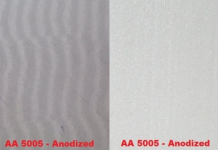Solar panels have become the smart choice for homeowners who want to cut their electricity bills and help the environment. But the upfront cost can feel overwhelming. A typical residential solar installation runs between $15,000 and $25,000 before incentives.
That number might make you want to stick with your current electric bill, but don’t give up just yet. The truth is, you don’t need to drain your savings or settle for overpriced financing to make solar work for your home.
Here are four practical ways to finance your solar installation without breaking the bank.
Understand Solar Panel Installation Costs
Before you can save money, you need to know where your money goes. The solar panel installation costs break down into several components:
- The panels themselves
- Inverters
- Mounting equipment
- Electrical work
- Permits
- Labor
The panels typically account for about 30% of the total cost, while labor and installation make up another 30%. The remaining 40% covers equipment like inverters and mounting systems, permits, and other soft costs.
What matters most is that installation costs vary significantly based on your location, roof complexity, and system size. A simple installation on a south-facing roof with easy access costs less than a complex installation that requires additional electrical work or structural modifications.
Get multiple quotes to understand the realistic price range for your specific situation.
Explore Government Incentives and Tax Credits
The federal solar Investment Tax Credit (ITC) lets you deduct 30% of your solar installation costs from your federal taxes. This credit applies to the entire system cost, including equipment and installation. If your system costs $20,000, you get a $6,000 tax credit. That’s real money back in your pocket.
Many states and local governments offer additional incentives:
- State tax credits that stack with federal credits
- Cash rebates that reduce upfront costs
- Property tax exemptions for added home value
- Net metering programs that pay you for excess energy
Research your local incentives before you buy. Some rebate programs have limited funding and operate on a first-come, first-served basis.
Seek Low-Interest Loans and Financing Options
Solar loans often offer better terms than traditional home improvement loans because lenders see solar as a valuable home upgrade. Many solar loans come with interest rates between 3% and 7%, depending on your credit score and the lender.
Credit unions frequently offer the best rates for solar loans. They’re member-owned and tend to provide more favorable terms than big banks. Some solar installers partner with financing companies to offer promotional rates, sometimes as low as 0% for qualified buyers during the first 12 to 18 months.
Home equity loans or lines of credit can also work well for solar financing. The interest you pay may be tax-deductible, and you typically get lower rates than personal loans.
Consider Leasing or Power Purchase Agreements
Solar leasing lets you install panels with little to no money down. You pay a monthly lease payment that’s typically lower than your current electric bill. The leasing company owns and maintains the system, which means you don’t worry about repairs or maintenance.
Power Purchase Agreements (PPAs) work similarly, but instead of leasing the equipment, you agree to buy the power the system generates at a predetermined rate. This rate usually starts lower than your current electricity rate and includes small annual increases.
These options work well if you want predictable monthly costs and don’t want to handle maintenance responsibilities.





